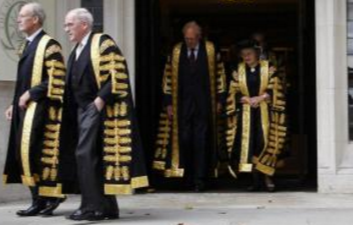Extracted from Caribbean Trade Law and Development website
 Mark the date Tuesday, January 24th at 9:30 am on your calendars! That is the date on which the United Kingdom’s highest court will deliver its highly anticipated judgment in the appellate case of R (on the application of Miller and another) (Respondents) v Secretary of State for Exiting the European Union (Appellant), known more […]
Mark the date Tuesday, January 24th at 9:30 am on your calendars! That is the date on which the United Kingdom’s highest court will deliver its highly anticipated judgment in the appellate case of R (on the application of Miller and another) (Respondents) v Secretary of State for Exiting the European Union (Appellant), known more […]





The blogmaster invites you to join the discussion.